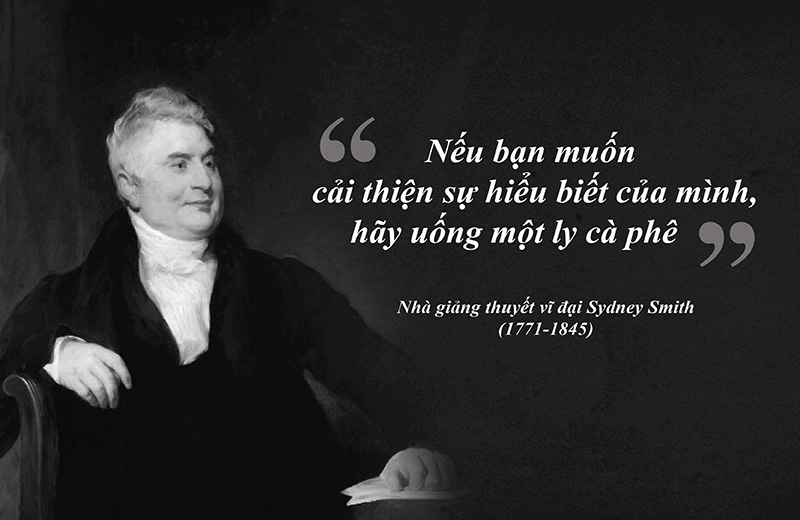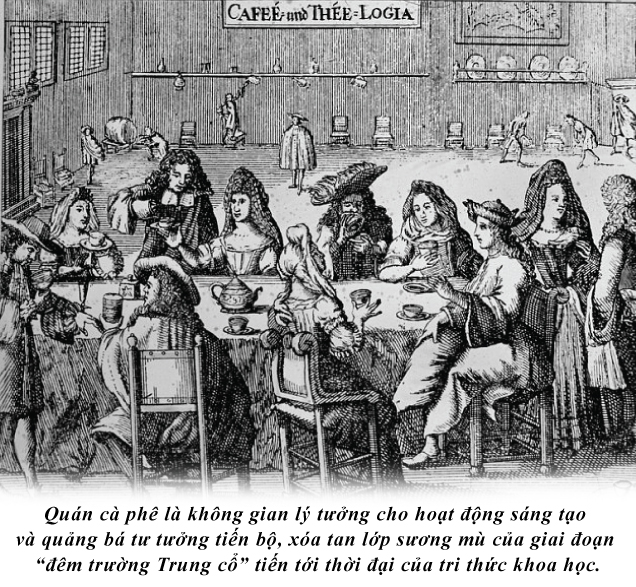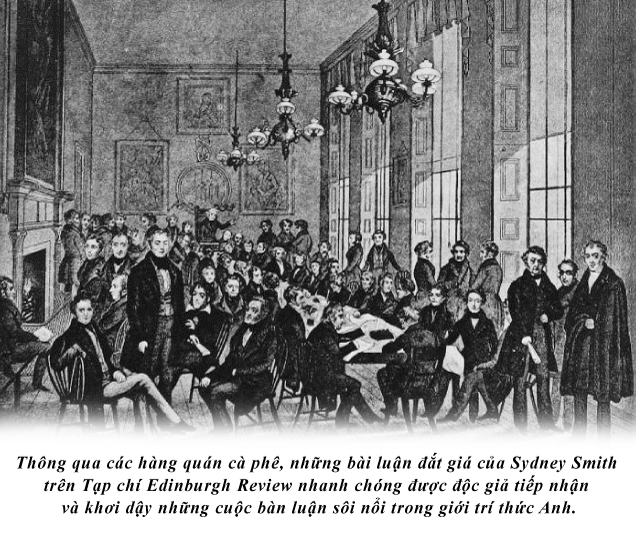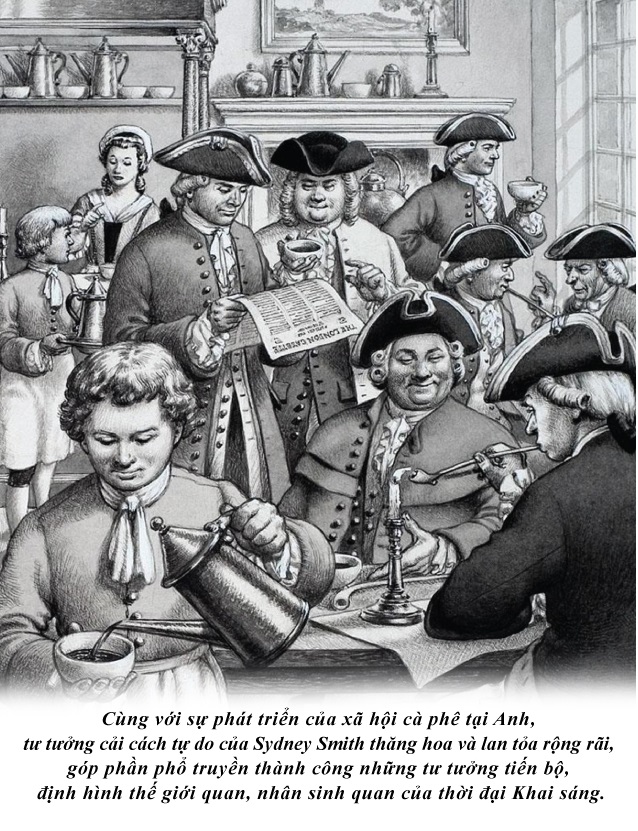Article 43: Coffee and Sydney Smith’s radical liberal reform spirit
Coffee appeared in the UK in the 17th century, at the same time when the Enlightenment boomed, became an indispensable beverage for intellectuals in the process of shaping the ideological system of British society at that time.

“If you want to improve your understanding, drink a cup of coffee.” The great writer and cleric Sydney Smith (1771-1845)
The beverage of the Enlightenment
Coffee began to be consumed in the UK by a minority with connections to the Levant merchants. Soon, this beverage quickly became loved for its mind-opening benefits, and as a catalyst for the creation of new ideas. The Enlightenment intellectuals of this period mentioned coffee as a panacea for the brain. Reformer Sydney Smith asserted, “If you want to improve your understanding, drink a cup of coffee.”

The coffee shop was an ideal space for creative activities and promotion of progressive ideas, dispelling the fog of the “Medieval dark ages” towards the age of scientific knowledge.
Along with coffee, coffee shops became popular in the UK with the name “Penny Universities”. This place was a space to create and promote progressive ideas, dispel the fog of the “Medieval dark ages” to advance to the Enlightenment era. Great thinkers such as Sydney Smith, Voltaire, David Hume, … chose the cafe space as a place to lecture, meet and debate with other intellectuals on an equal and democratic basis. The cafe also became a special information center when printed newspapers were born and became popular. Enlightenment press publications were circulated here in turn to serve the needs of intellectuals to access new ideas and innovations.
Sydney Smith’s liberal reform spirit flourished from the cafe
The intellectual atmosphere in British coffee society strongly influenced Sydney Smith. In a coffee shop at the University of Edinburgh, he was exposed to the most genuine enlightenment ideas, and made friends in the philosophical debate club with Francis Jeffrey, Francis Horner and Henry Brougham. They later became his companions in founding the Edinburgh Review. With a critical style that satirized the outdated thinking of the old times, promoting urgent reform in society, the Edinburgh Review was considered a discourse of liberal thought typical of the Enlightenment movement in the UK at that time, at the same time it was regarded as a symbol of new literature.

Through cafes, Sydney Smith’s valuable essays in the Edinburgh Review were quickly received by readers and aroused lively discussions among British intellectuals.
During this period, Sydney Smith realized the impact of coffee on the sublimation of the limitless creative capacity of people. In his Memoirs, he expressed a particular interest in this “enlightening drink”. He described coffee as an indispensable drink every time he wrote, so he wrote more than 200 articles and essays against slavery, defending women and children, analyzing the principles of political economy…

Along with the development of the coffee society in the UK, Sydney Smith’s liberal reform ideas flourished and spread widely, contributing to the successful dissemination of progressive ideas, shaping the worldview and human perspective of the Age of Enlightenment.
Through the cafes, Sydney Smith’s valuable essays such as “Taxation in England during the industrial revolution”, “Letters of Peter Plymley to My Brother Abraham Who Lives”… on the Edinburgh Review were quickly received by readers and aroused world-changing discussions. He became one of the famous reformers of the period and was invited to lecture at the University of Edinburgh and the Charlotte Street Chapel community. His lectures attracted hundreds of participants because his liberal and democratic reform ideas were highly radical, interesting and served the path of freeing thinking and bringing people out of the mazes of the medieval dark ages, to be awakened to a new life.
It can be said that, along with the development of the coffee society in the UK, Sydney Smith’s liberal reform thought was sublimated and spread widely in the intellectual community, successfully promoting progressive ideas, contributing to shaping the worldview and human perspective of the Enlightenment era.
THE REAL COFFEE
ROASTED ONLY FOR PEOPLE OF WISDOM!
Source: “The Philosophical Way of Coffee” – copyright by Trung Nguyen Legend


